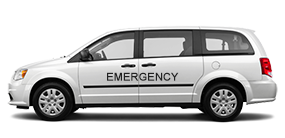Every Drop Counts
As you may know, the Med Center has set an ambitious goal to achieve a neutral water footprint by 2030. That means using the same amount or less water than the annual amount that falls on campus as rain and snow. To achieve this goal, the Med Center needs to reduce water use to use no more than 104 million gallons per year. Currently we use about 188 million gallons per year. We’ve already made great strides, (a 17% reduction from our 2010 baseline!!) and with a concerted effort from all levels of our organization we can meet our goal.
We are inviting you to participate in a new campaign called Every Drop Counts to foster a conversation amongst people on actions to reduce water use. This campaign is especially timely given the fact that MUD recently announced they will be increasing rates 19% for commercial water use, and 7% for residential customers.
From March 18th to April 30th, we are asking you to communicate your actions and ideas to conserve water to your peers. Talk with your coworkers about how they too can reduce water use, help us achieve our 2030 goal, and help us to save money.
We have your list of ideas below to get your started. Doing something to save water that isn’t on the list? Email LiveGreen@unmc.edu and we’ll get it added!
Then, you can spread the word in as many creative and effective ways as you can think of! That might include:
- Talking with your staff about actions you already take to reduce water use
- Sharing creative ideas to save additional water with your supervisor
- Sharing ideas with your peers on your listservs
- Making an announcement at your staff meeting
Ways to save at work
Most spaces:
Report all drips and leaks to Facilities.
Bring dishes/mugs from home, wash them at home in dishwasher.
Dump extra water into plants.
Turn the faucet on part way, only using the pressure you need.
No courtesy flushes.
Bring coffee from home.
No Kcups, use own grounds in reusable pod.
Don’t use ice.
Don’t let the sink run while you wash the dish.
Don’t put water in the coffee pot overnight, leave it empty.
If you must, use the smallest amount and then use that to make the next pot.
Avoid splashing items when putting stuff down the drain, pour directly into drain hole; saves water and time on rinsing.
Tell others!
Research areas:
Report all drips and leaks to Facilities.
Don’t unwrap sterile glassware until you need it.
Use the water from eyewash station flushing–water plants, rinse dishes, etc.
Don’t let the sink run while you wash the glassware.
Wipe water baths and other equipment with water holders immediately after use. Holding water in unused equipment for a long time contaminates, rusts the equipment, and needs more water for cleaning when reusing after long break
Avoid splashing items when putting stuff down the drain, pour directly into drain hole; saves water and time on rinsing.
Tell others!
Patient areas:
Report all drips and leaks to Facilities.
Don’t let showers warm up any longer than necessary.
Mind linen use and stocking.
Avoid splashing items when putting stuff down the drain, pour directly into drain hole; saves water and time on rinsing.
If bottled sterile water is still unused (but open) after a procedure, save it to be used in the initial rinse/cleaning of equipment, which will save tap water and allow you to fully use the bottled water you paid for.
Tell others!
Did you know that large amounts of water are used in the raising and production of meat, production of all goods, and in creating fuel used in transportation? Find out what you water footprint is with this water calculator. To further reduce your water footprint consider:
Eating less meat.
Using TravelSmart to commute, combine trips in the most fuel efficient vehicle possible.
Buy less single use items (reduce and reuse).
Shop for necessity, not for pleasure.
Recycle (or donate) everything feasibly possible.
Tell your elected public power official you want more renewable energy.
Most people don’t understand the connection between water and material goods, tell them!
Save Water at home:
Repair all leaks and drips.
Turn the faucet on part way, only using the pressure you need.
Turn off the faucet when your brush your teeth.
Don’t let the shower warm up any longer than you have to.
Save that water to use for plants or something else.
Take 5 minute showers. Need some songs to keep you on track? Check out this list.
Don’t brush your teeth, eat (really?!?), etc. while in the shower.
Install low-flow shower heads and faucets.
Install low-flow toilets. Not in the budget? Seal a jar with rocks and place it in the toilet tank. It takes up the space used by water, reducing the amount you use.
“Let it mellow”
Don’t let the kitchen sink run when you aren’t using it.
Fill a rinse sink instead of rinsing under the faucet (savings depends on number of dishes).
When necessary, upgrade to water efficient, energy star rated appliances.
Install a rain barrel, or 2.
Plant correctly sited native plants, that are drought resistant.
Don’t let your sprinkler system run automatically–you are over watering.
Get a rain sensor.
Repair/re-aim broken heads.
Set the time for what’s actually needed for the space.
Change program to run when you tell it to.
Analyze drainage, correct where needed, capture where possible.
Put in a rain garden.
Houseplants can humidify a room, allowing you to remove humidifiers (which saves energy!).
Avoid splashing items when putting stuff down the drain, pour directly into drain hole; saves water and time on rinsing.



